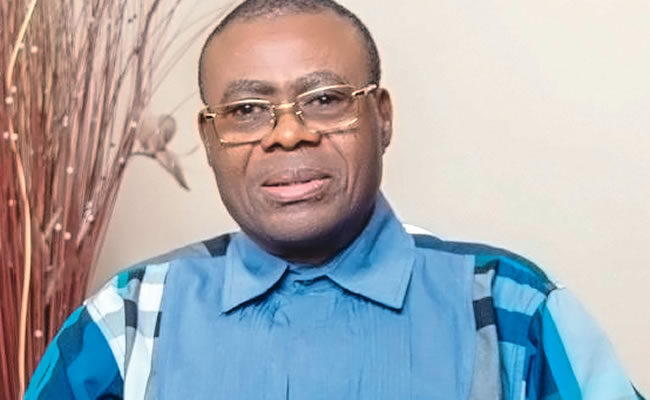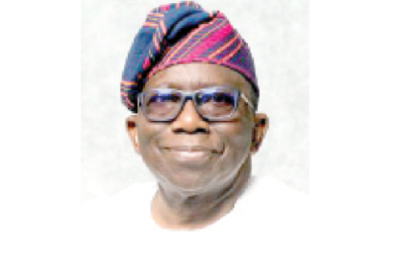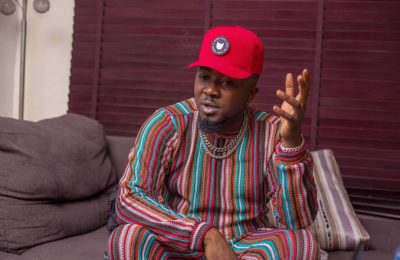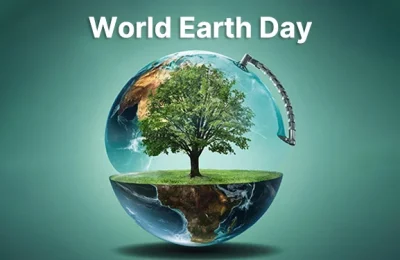

Son of a medical doctor, Nsikak Essien studied Electrical/Electronic Engineering at the University of Nigeria, Nsukka (UNN) and Micro Electronics at Cardiff University in Wales, United Kingdom, but ended up as a super journalist. He tells SAM NWAOKO his experience in this interview.
Everyone has a prelude to their journalism voyage. What is yours? How did your journalism story begin?
I was in the Cardiff University, Wales in the United Kingdom when I discovered that there were science people in journalism. So, when I came back to the country, I started writing science stuff for Daily Times of Nigeria. The Times Group had Daily Times, Sunday Times and Business Times. Onyema Ugochukwu, the Editor of Business Times then and Stanley Egbochukwu, his deputy, were very interested in what I was doing because obviously, so many people needed to know all these things about science in journalism. They invited me to come and join mainstream journalism. That was how I found myself in Concord Newspapers which had just started Business Concord. So, I joined Stanley Egbochukwu, who was its pioneer Editor as Industry Correspondent. I wrote on generators, electronic gadgets and everything about science that an ordinary person needed to know about consumer journalism. That was 1983. In 1985 I was promoted to Deputy Editor of Business Concord, in 1988, I became the Editor of Business Concord and in 1989, I was promoted to the Editor of National Concord newspaper.

Obviously, the idea wasn’t for you to finish your course in Cardiff and take up journalism?
I sold generators at Tractor & Equipment, which was a division of UAC Nigeria. We sold and installed Caterpillar generators. If you needed generators (62KVA – 1MVA), we would come to you, do the load study of your place, tell you the size of generator that you needed and why. We did this because people just bought generators and you don’t just buy a generator. You must do a load study to know the size of generator that you need because you should load a generator to minimum of 60 per cent capacity. It’s just like the mobile phones that everybody buys now. Many people buy phones that they do not need. A phone is not the best because it costs N1million, but because of what you can do with it. If what you need can be provided by a N50,000 or N30,000 phone, that’s all you need. Otherwise, you’ve just wasted the money. You need to understand these things before you decide to make a purchase.

I worked as an engineer for about six years before coming into journalism. After NYSC, I was in the third set of NEPA Training School at Ijora in Lagos. All engineering graduates that joined NEPA had to go through that training school. That’s where you’re taught what is called People Engineering. The two-year pupilage was under some seniors who showed you some basics of engineering.

What was your first meeting with Chief MKO Abiola like?
I did not meet Chief MKO Abiola like that. Chief Abiola brought two consultants from Thomson Foundation in the UK and they worked with us for about one month. They looked at every aspect of what we were doing, they advised us and all that. When they finished the job, they were the ones who recommended that I should be made Editor of National Concord. Then, Abiola had not known me and I didn’t even meet him more than once. At that time, I was the Editor of Business Concord and the MD, Dr. Doyin Abiola, was supervising me directly. So she knew me. Chief Abiola asked who was Nsikak Essien and the woman said she was impressed with what I was doing and that she supported the recommendation. That was how I was made the Editor of National Concord. So, it was after I was named the Editor of National Concord that I met Abiola one-on-one.
What impression did you have upon meeting him; as what kind of human being did he come across to you?
Almost every Nigerian knew Abiola then. As editor, someone working directly with him, I realised that he was a very brilliant person. He had ideas and wanted the best for Nigeria in terms of journalism in Concord. He wanted me to make National Concord the best newspaper in the country and I was determined to do that. And I think we achieved that before he died.
When you look at journalism then and now, what are those significant changes you would readily point at?
It is difficult for me to stay outside the main spheres of journalism and compare because I don’t know the troubles they are going through now. I was not editor under a democratic system, I was editor under the military and of course we wanted the military out. We didn’t have freedom; they were always on our neck.
However, now, we have the social media. Anything that came as far as my desk went through a number of editors before reaching my desk. So, what you may describe as rubbish that you see in the social media will not get to my desk because they would have been thrown away. We didn’t have fake news then and I think it is because of the social media that we have fake news now. There are people in corridors of power who deliberately plant fake news and mislead reporters. The challenges now are different from the challenges we had when I was editor, so it is difficult for me to say this is what they are doing right and this is what they are not doing right.
In the same vein, look at Nigeria now and what you had then. The country is in a kind of quandary. What do you think we should do as a nation or where do you think we need to fix as a country?
Nigeria is not where it is supposed to be because of leadership. Nigeria’s problems are as a result of leadership because if the leadership is right, people will follow. Leadership is everything. Like what we are going through now which is shortage of currency, the collateral damage is too high! Businesses have been killed in the last one month or so and the government is continuing that stuff!? Oh dear! It is sad. If the leadership was in touch with the people, I don’t think they would allow people to continue suffering like this. So, the mistake is there: Buhari is not the president that Nigeria needs and many of us realised this. Eight years is a big learning experience. People who did not agree that the man was not good have now come to realise this. Buhari does not solve problems. Instead, he sits back. You can see his governors are fighting him; the cabal is being mentioned and so on; what kind of leadership is that? The horrible leadership we’ve gone through has given us experience and in the next election, I guess people will think differently. So, leadership is the problem.
Outside the worries of the country and enjoy the experience of ‘from selling generators to editing a national daily’, the story of Nsikak Essien… Did you plan this as you studied in Wales?
I studied Microelectronics in Cardiff after my first degree in Electrical/Electronics in University of Nigeria Nsukka (UNN). But I have always loved journalism, especially the print media and I think I picked it from my father. My father was a medical doctor but he will wake up everyday from about 5am with his radio set listening to VOA. From VOA he would tune in to BBC and to Radio Nigeria at 7 O’clock. So, I was used to that and I was current just as he was current with what was happening in the country. Then, of course, he would buy newspapers and we would read. When I was in the university, we had super writers like Gbolabo Ogunsanwo, Sad Sam (Sam Amuka Pemu) who is still alive; we had Alade Odunewu and so on. I studied those people like a book. At that time – I don’t know what happens now – we learnt that one of the ways to better our English was to make newspaper cuttings of those who were writing very well and read them many times. So, I would say that I understood journalism very well even while I was in the university studying electrical engineering.
Then, I think I have also always been given to social development. In the university at that time, there was so much dynamism. I attended symposia. I went to UNN shortly after the war. Biafra lost the war and within the university, everyday was analysis of what went wrong and how it happened. Things like that moulded me. The military came and debased our values. Before the war, you just cannot come from nowhere and be somebody. But when the military came in, from nowhere you carry a gun, go on radio and the following day you become somebody. We still have that culture in Nigeria today more than 50 years after the war. So, I have always been interested in social development.
Also in the university, I was taught to be a manager. Being an engineer was just the beginning of the ladder. Every person who has moved up the ladder becomes a manager. A manager takes decision on everything. You have staff members that depend on you. If they are not happy, you won’t be able to take them along, you have to motivate them. I was taught all these things in the university. That is not engineering, that is life and you find it in everything that you do. That’s why we accuse Buhari of inability to relate with his subjects. He can’t relate with us. Look at Governor Sanwo-Olu in Lagos, he has addressed his people twice in the last two weeks. The people in Lagos are going through the same hell that we are going through in Akwa Ibom State. My governor has not found it necessary to address the people. Where is the empathy? It has nothing to do with politics, it is lack of empathy and inability to understand what leadership is about. So it is about the individual, not the political party. Whether you started with engineering or you started with journalism or whatever, you end up being a manager and you have to attend to the every need of the people. Today, they are teaching entrepreneurship in secondary school which is very good and that the NYSC has improved on it is fantastic. So, in journalism we have to know it also. I believe that they teach entrepreneurship in journalism school now. When I went into full time journalism, I found that most of them had not heard about management.
READ ALSO FROM NIGERIAN TRIBUNE









